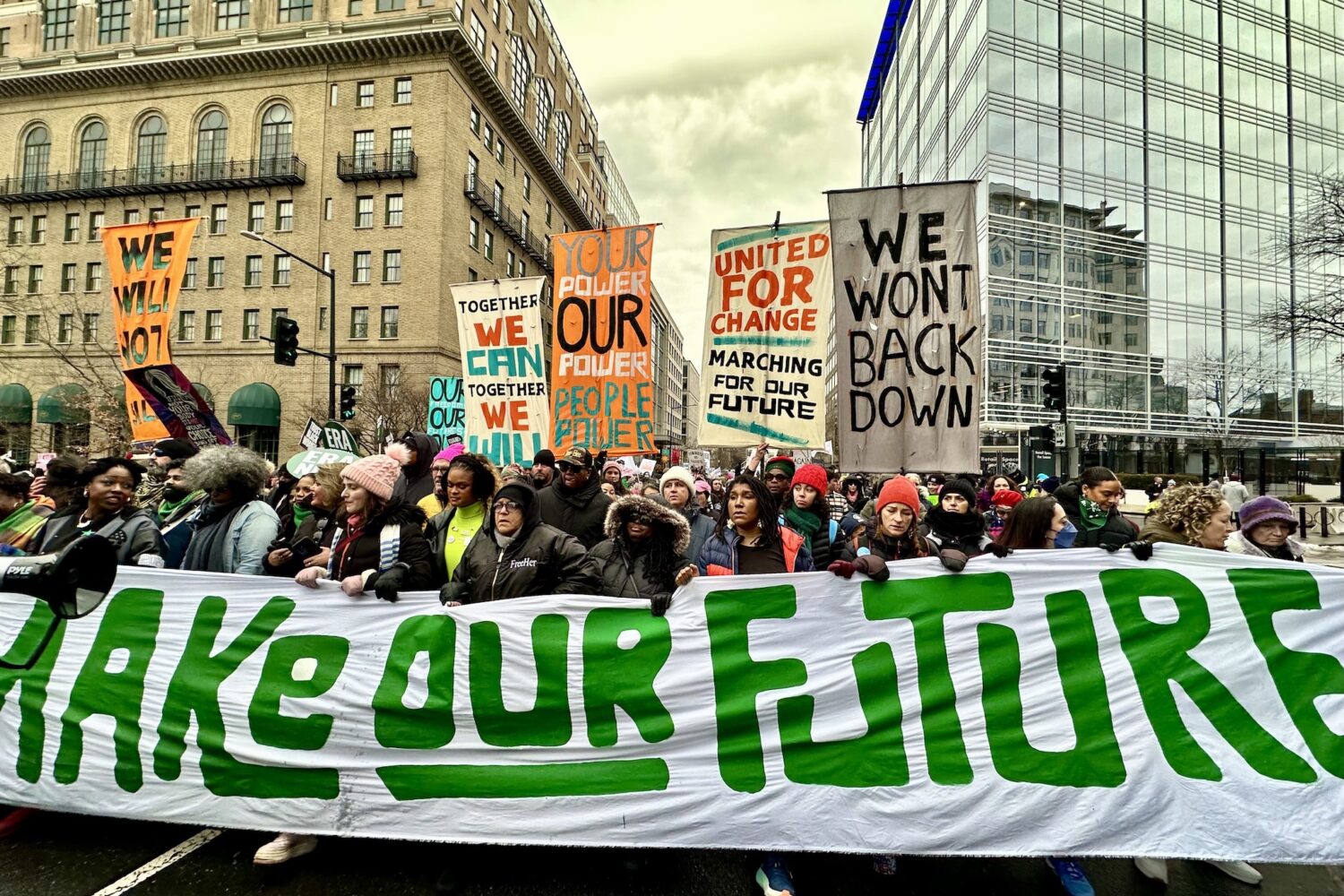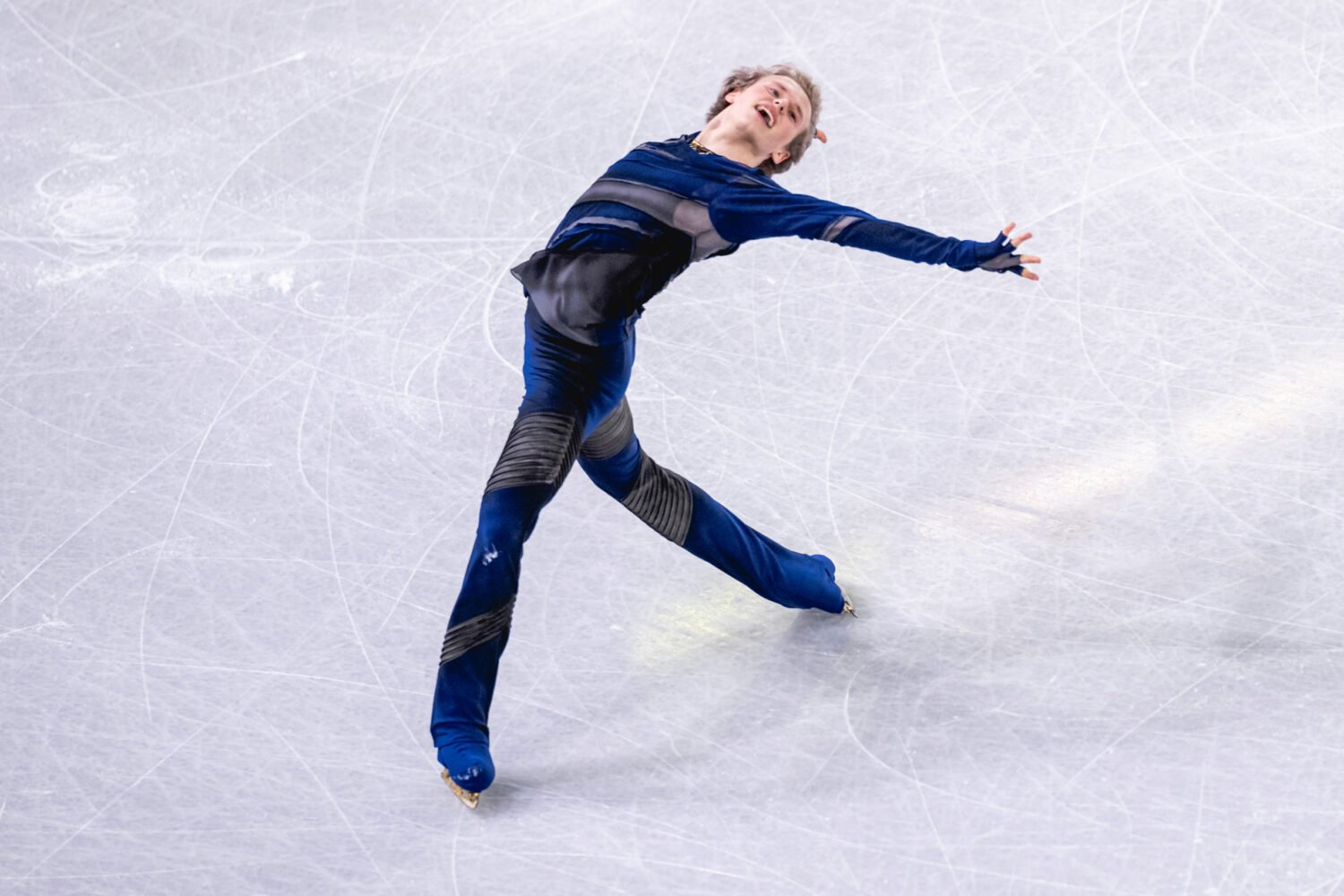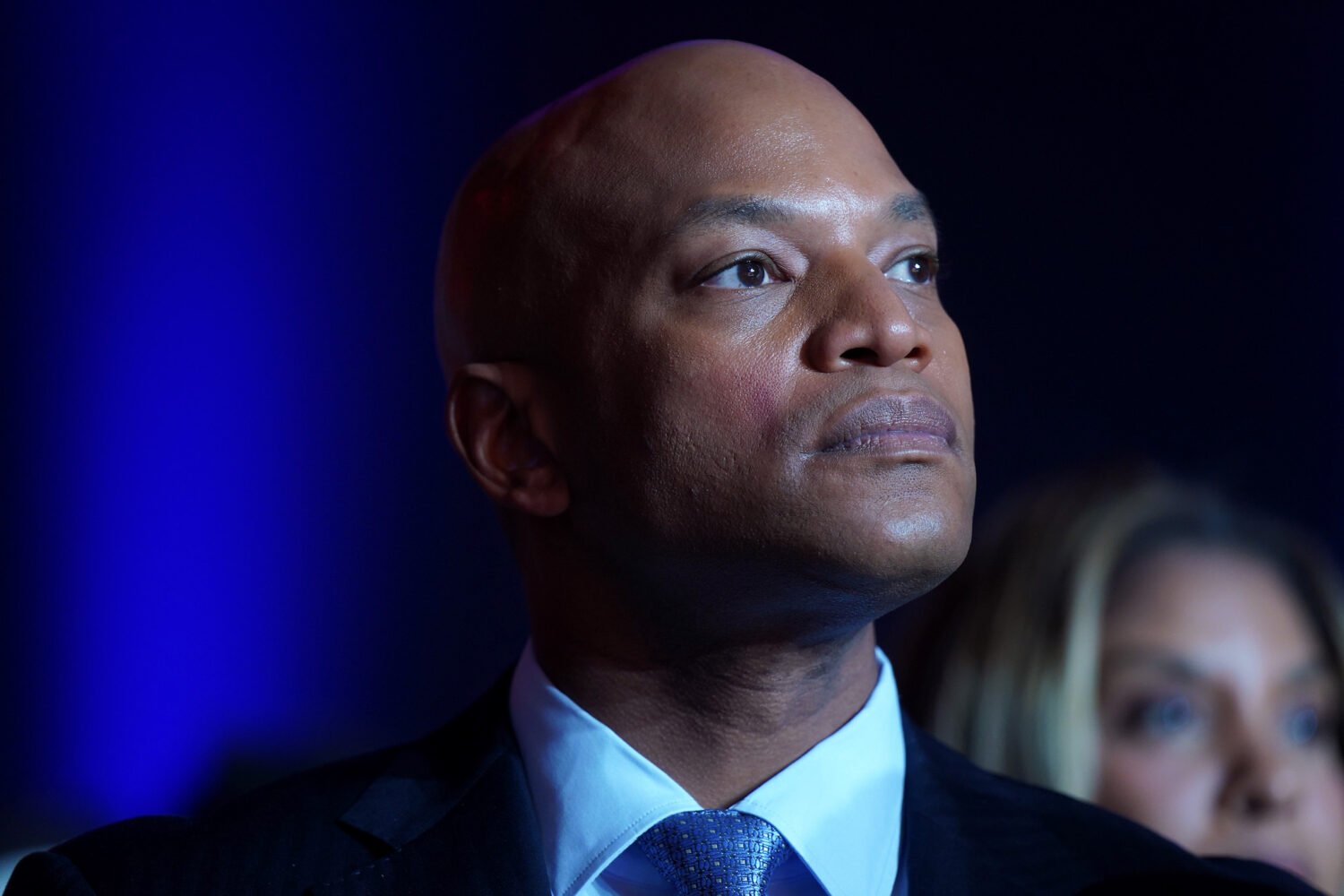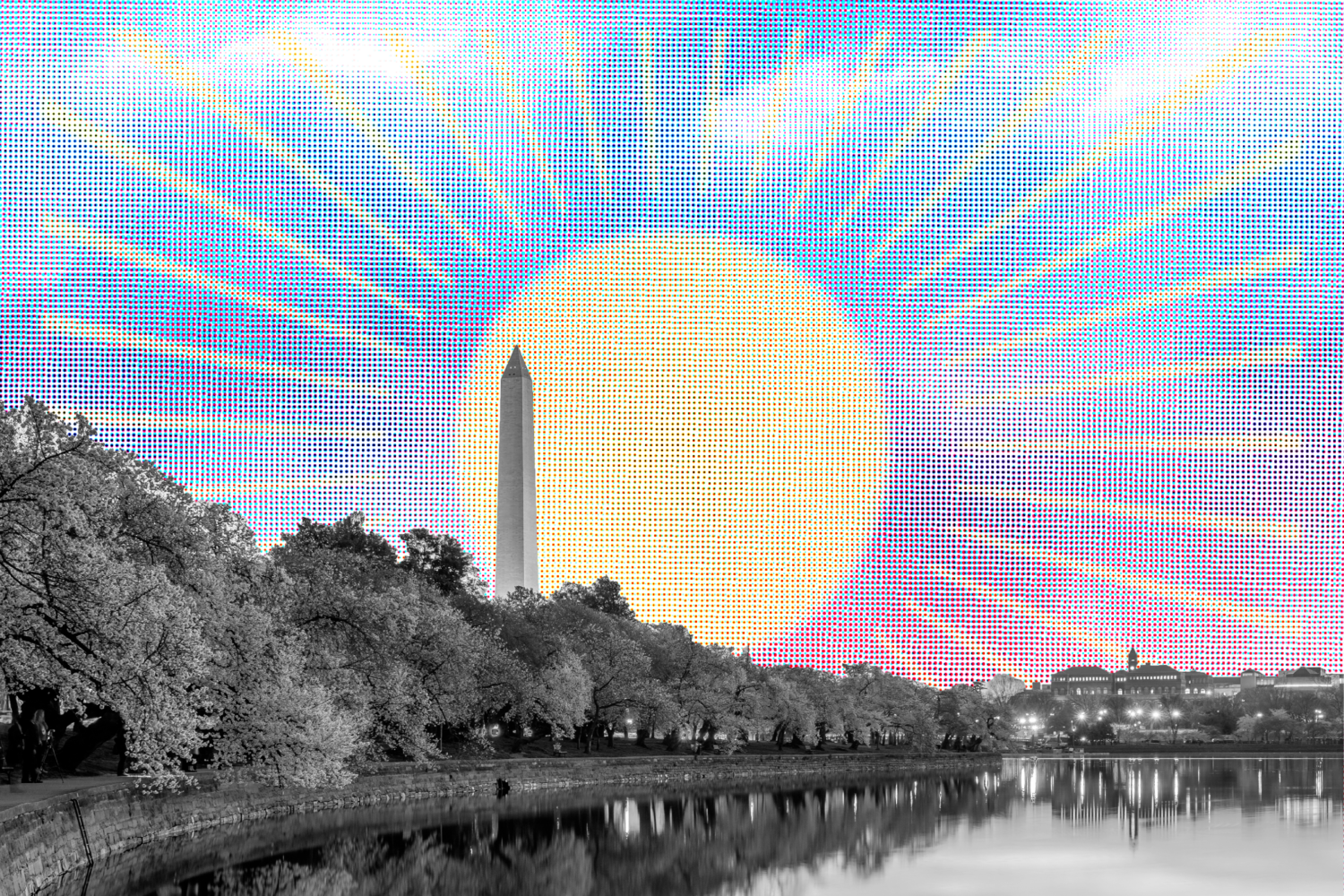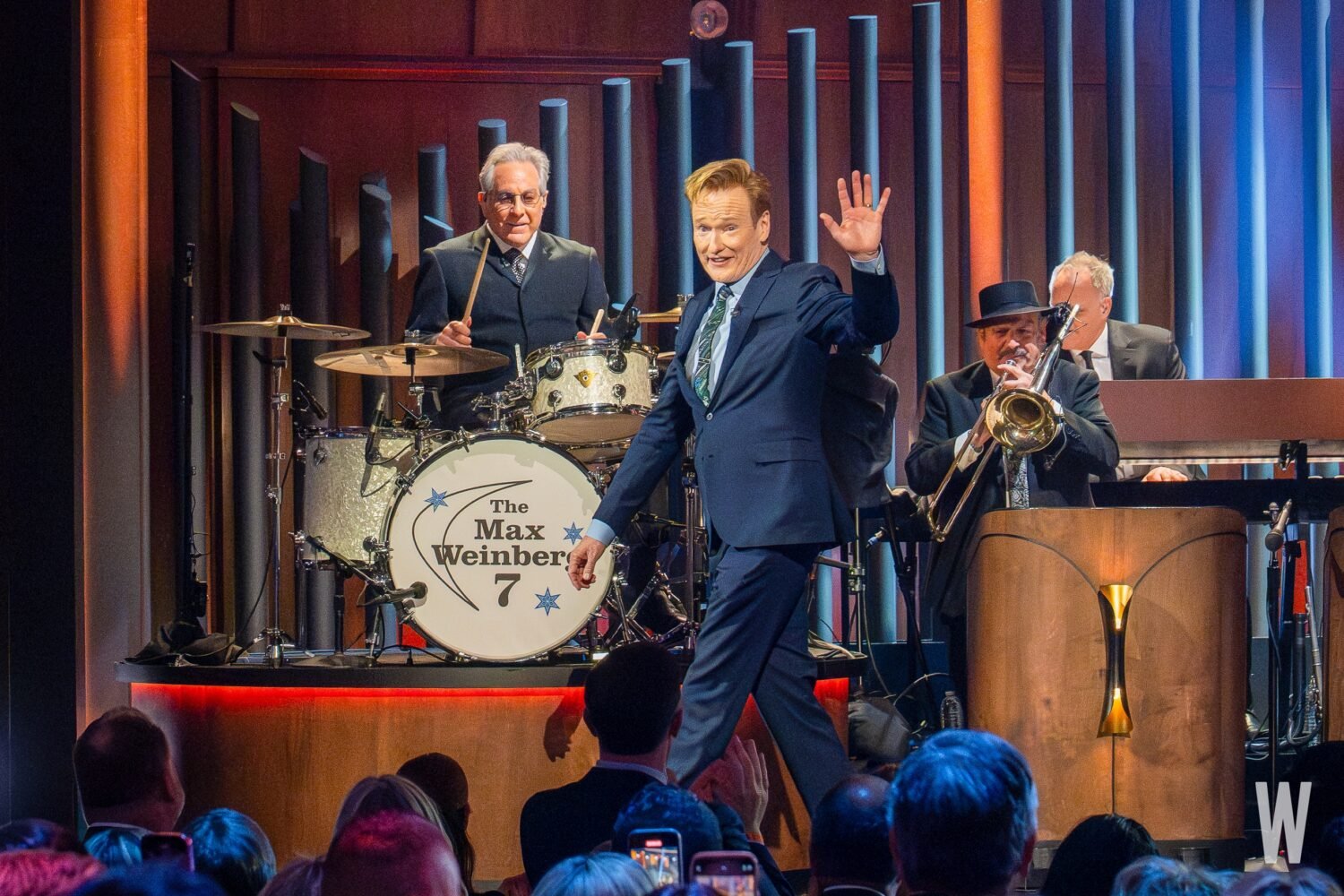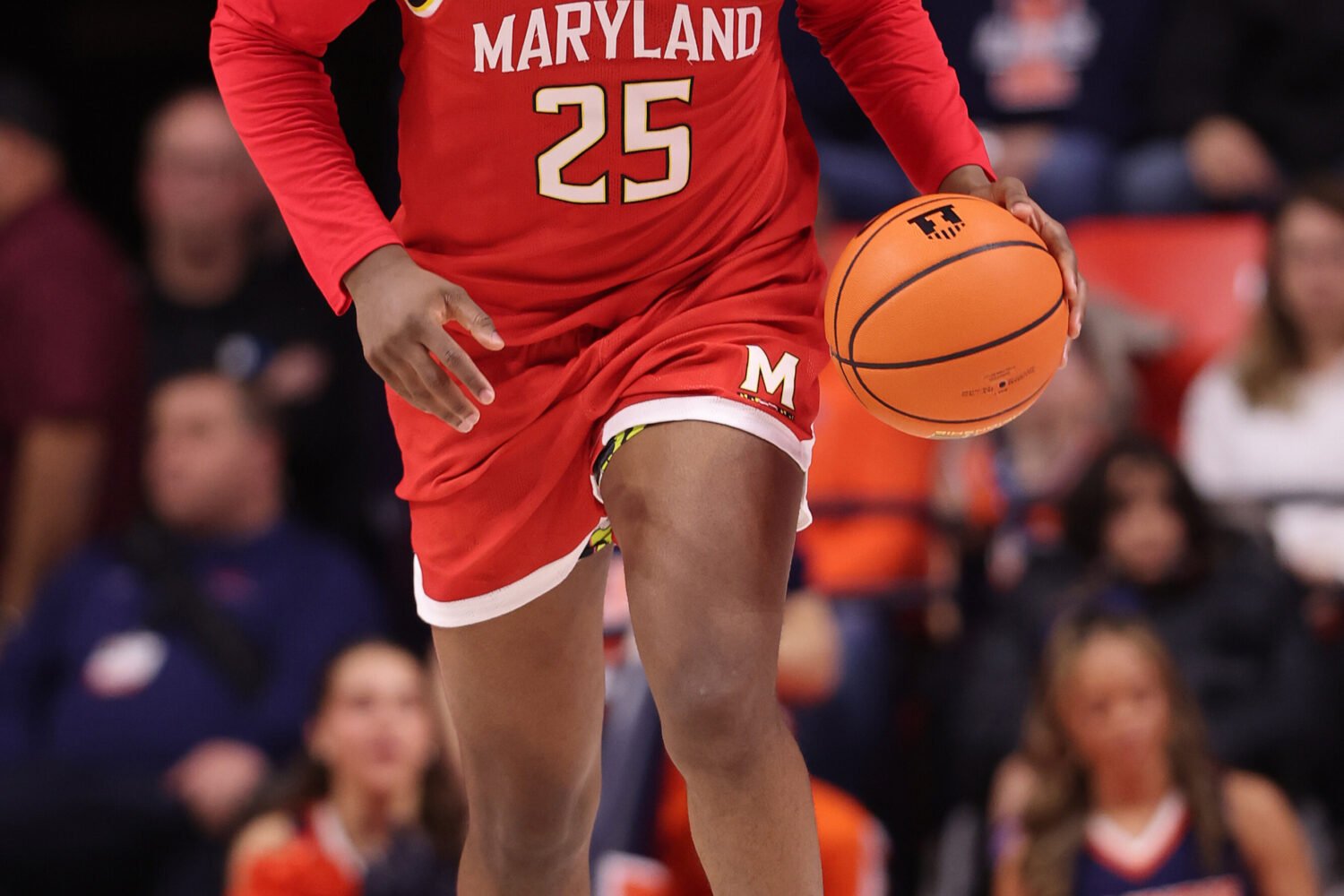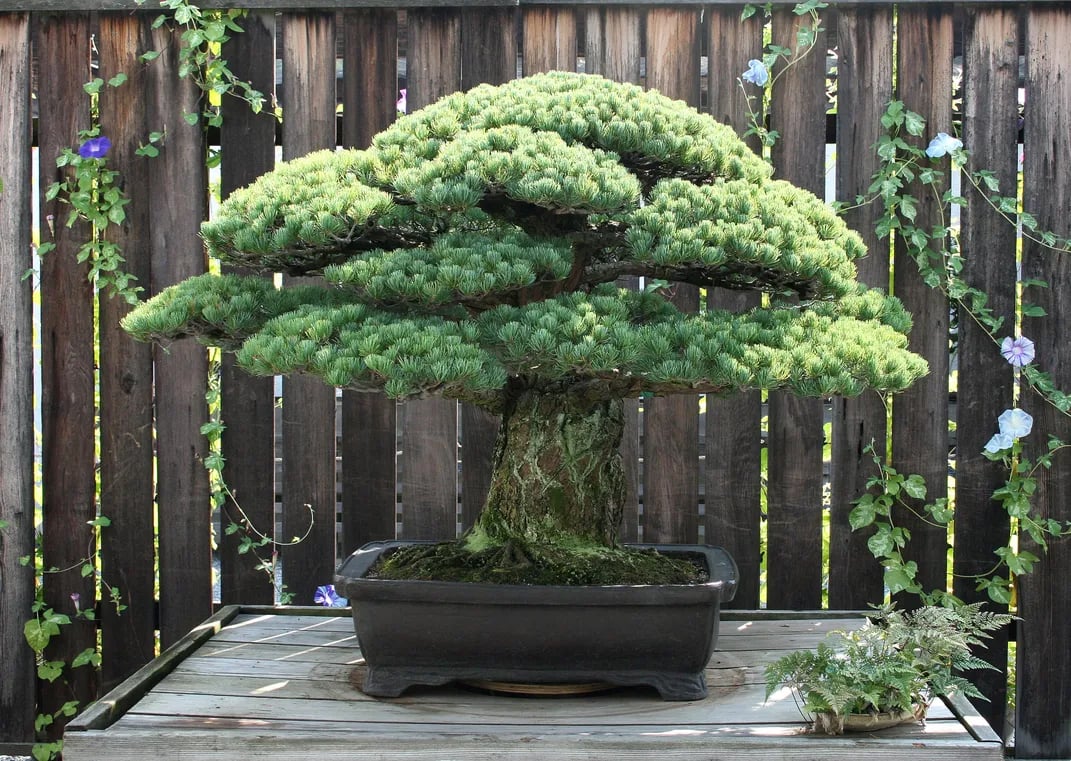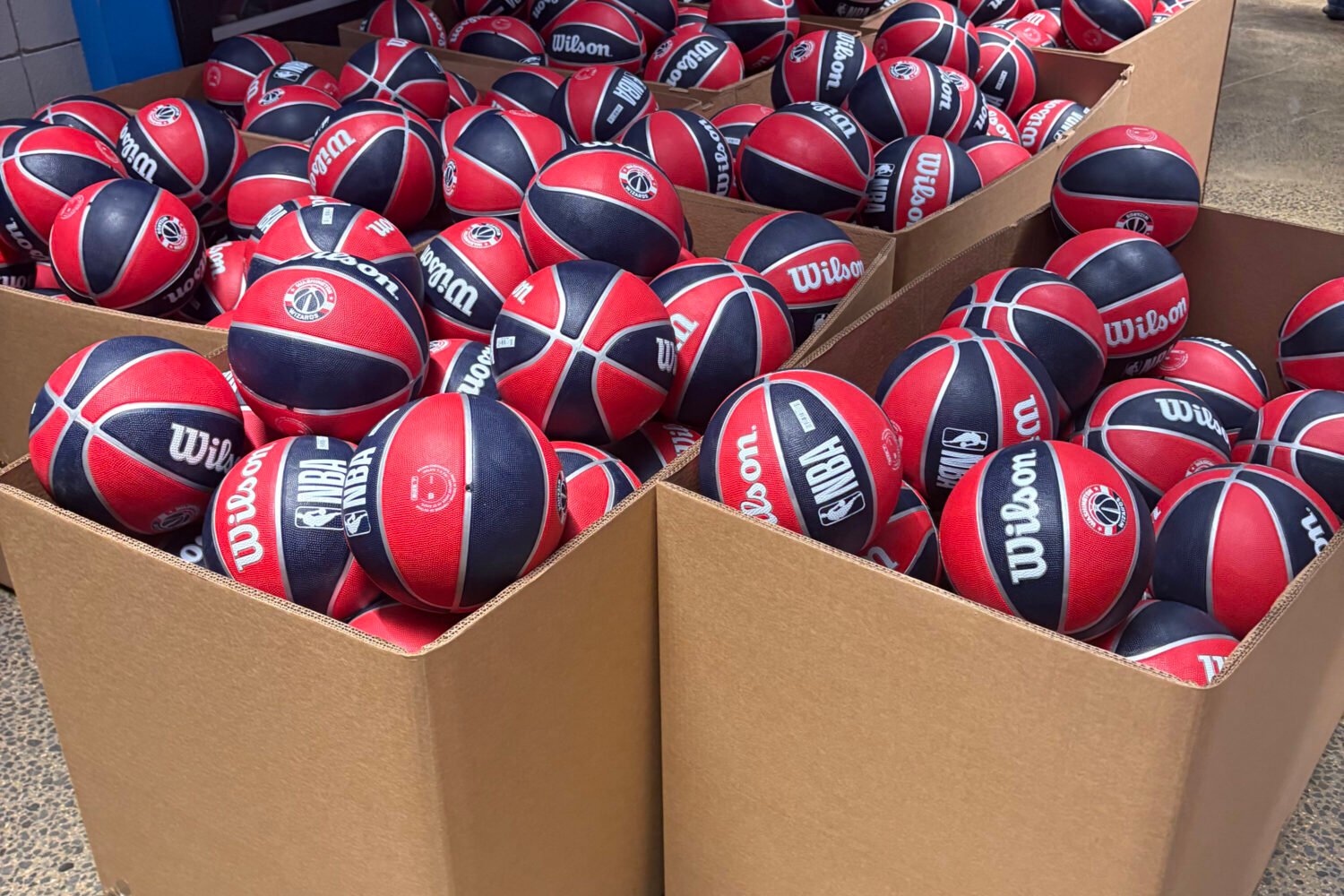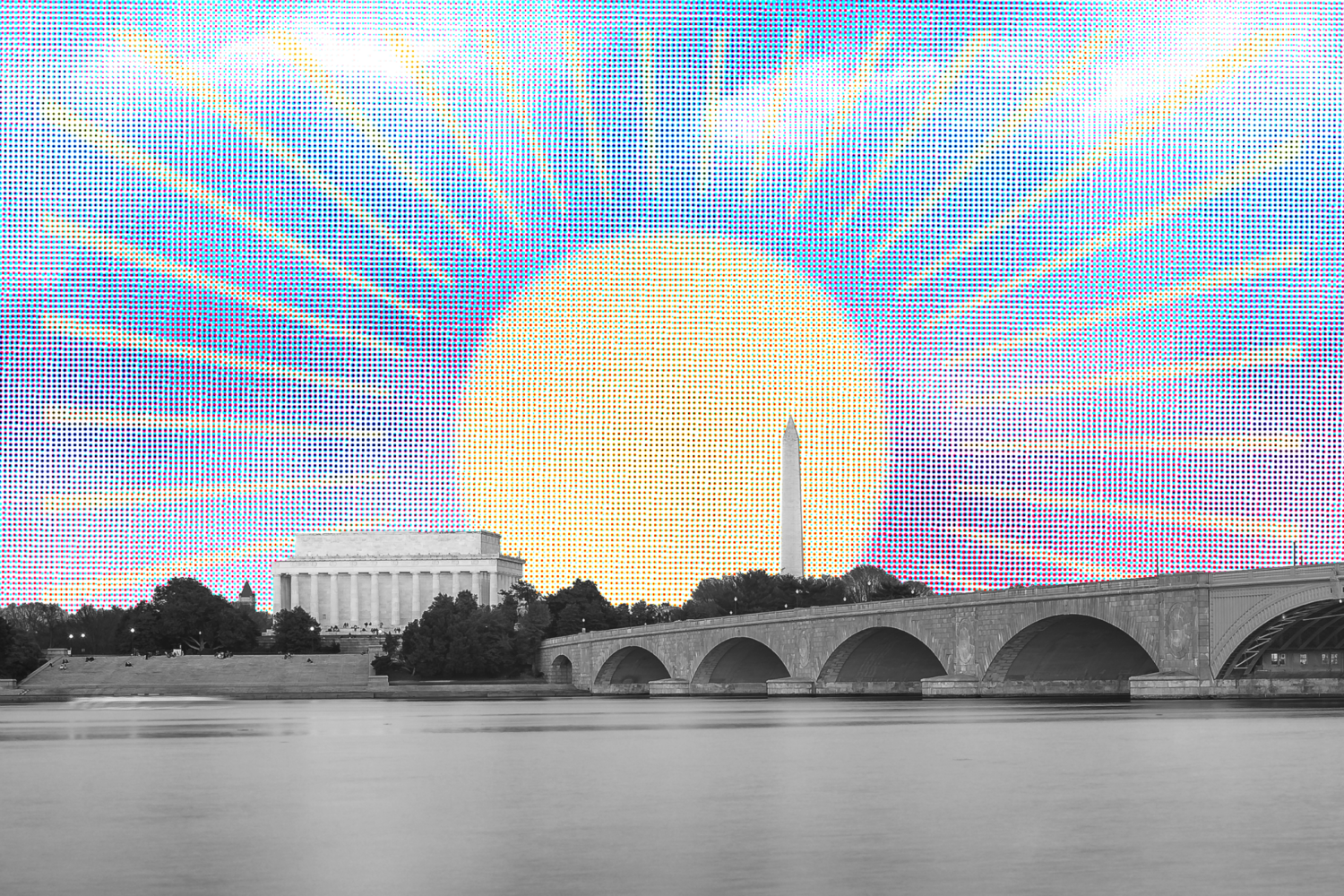The selling of Steve Francis became a full-court press as the day of the 1999 National Basketball Association draft approached.
There was the Godzilla-size photo of Francis, flying with ball in hand, on the wall across from DC's MCI Center. There was a predraft reception at Sequoia restaurant in Georgetown's Washington Harbour. There were appearances on local and national TV sports shows and a Steve Francis video.
Francis, the 22-year-old basketball phenom from Takoma Park, had decided to leave the University of Maryland after one year and take his talents to the NBA. The goal of the predraft hype was to get Francis to the right team in the right city with the right TV exposure and to secure the best off-court endorsement deals.
A few days before the June draft, the two men conducting the campaign strolled over to "the wall" with Francis and two Reebok executives. Jeffrey Fried, the player's attorney and agent, and Nathan Peake, Francis's mentor and business manager, looked on as Francis donated $10,000 to the Takoma Park Recreation Center. Still cameras flashed. TV cameras rolled.
When the streets cleared, Fried and Peake sauntered to the MCI Center to select a pair of courtside seats for the season.
"This is a sweet moment for us," Fried said.
At the Sequoia reception, the big questions were these: Would Francis be picked first? Would he go to the Chicago Bulls? Would he be the next Michael Jordan?
"He is self-possessed like Michael Jordan," said Rock Newman, the sports impresario who promoted former heavyweight boxer Riddick Bowe.
The next night, before a national TV audience, Francis made a mess of things.
NBA commissioner David Stern first announced that the Chicago Bulls selected Duke big man Elton Brand. Then he announced that Francis was chosen by the Vancouver Grizzlies.
The young man who would be paid more than $3 million a year for playing basketball went into a full-court pout. In Francis's mind, Vancouver was a tiny media town a continent away, and the Grizzlies were a lowly team that already had a point guard. >
"Hopefully," he sullenly told the television audience, "tomorrow when I wake up I'll be happy."
Washington Post columnist Michael Wilbon wrote that Francis was "a one-year wonder who looked very selfish and completely ungrateful."
Jeff Fried was devastated. Nate Peake was depressed. Recriminations rolled in. Why hadn't Francis signed with an established agent like David Falk or Lon Babby?
"It became the summer of hell," says Fried.
Cut to last December 26 at MCI Center. The Washington Wizards are hosting the Houston Rockets. The NBA season is two months old. Forget Vancouver: Six months after the draft-night debacle, Steve Francis is playing point guard for Houston.
Toward the end of the first half, Wizards center Jahidi White has placed his 290-pound, six-foot-nine frame squarely in front of his basket. Francis, at six-foot-three and 193 pounds, brings the ball up court and drives the lane. He goes airborne at the foul line, cradles the ball over his right shoulder, and delivers a tomahawk dunk that puts White on his back and the crowd on its feet.
Francis has become an acrobatic presence in the backcourt from coast to coast. The "one-year wonder" is on course to be rookie of the year, though he's also getting a reputation as trash talker of the year. "He should have his mouth wired shut," Detroit Pistons guard Jerry Stackhouse said after a preseason dustup with Francis.
Off the court, Francis has inked a multimillion-dollar shoe deal with Reebok. He's got a six-figure endorsement deal with Wall Street Sports, plus equity. A trading-card deal. A radio show in Houston. A March Madness 2000 computer game with E.A. Sports. Look for him to be ubiquitous during the NCAA tournament when Reebok unveils its TV campaign that pairs Francis with Allen Iverson as the hip-hop icons of the hard court.
"He's getting more than $2 million a year in deals off the court," says an insider.
The reselling of Steve Francis is a story of persistence and positioning by Jeff Fried and Nate Peake. They helped engineer the biggest trade in NBA history. They put Francis in the off-court money river. And they did it as an unorthodox pair: Fried, the 42-year-old white lawyer who came up poor in Coney Island, and Peake, 29, the African-American who came up tough on the streets of DC.
In the summer of 1996, Steve Francis was another skinny 18-year-old with vast athletic potential, no high-school diploma, and lots of time on his hands. He'd been in and out of high schools and dropped out for good after his mother died of cancer in 1994. He was five-foot-ten and adrift. His neighborhood of Takoma Park near the DC line offered opportunities on both sides of the law. Living with Mabel Wilson, his grandmother, Francis played it straight, but a few of his childhood buddies made different choices.
Like Mike Palmer, who was gunned down that August. He was one of Francis's best friends. The death shook him up, and he asked his cousin Derek to call Nate Peake.
"Steve's looking for you," Derek said. "He wants to do the right thing and go to school."
Nate Peake was coaching basketball at Langley Park Boys and Girls Club that summer. Seven years older than Francis, Peake was known for taking young athletes from the streets to courts and colleges.
"Steve reminded me of myself," says Peake. "I wasn't your perfect kid. Like me, Steve was talented but didn't push himself."
Says Francis: "Nate's always been like a brother to me. There's nothing I won't tell him or he won't tell me."
Peake grew up on the streets of Northwest DC until his parents moved across the line to Hyattsville. His father, Ned, is a Vietnam veteran who was a master printer at the US Government Printing Office. His mother still works at the US Department of Education. Their home was always open to neighbors at a time when drugs and the go-go culture were beckoning young blacks. Peake's father wound up raising more children than Nate and his brother and sister.
"It wasn't until I'd grown up and left the house that I found out my father had saved his platoon and won a Purple Heart," he says. "I realized that he was always giving something back, doing things for other people, so I tried to do the same."
By the summer of 1996 peake had some experience managing athletes. He'd watched his cousin and friend, Sharmba Mitchell, become a talented amateur boxer, and when Mitchell went pro in 1988, Peake became his assistant trainer. Four years later, Mitchell had pounded his way into the prizefighting elite, competing for championship belts. Nate Peake had become assistant manager and found himself making deals with Don King, Bob Arum, and local boxing promoter Rock Newman. The buzz on the streets was that Nate Peake had developed a network of professional and college contacts for talented local boxers–and basketball players.
So in 1996 when Steve Francis needed him, Peake could help.
"Meet me at the gym," Peake said when Francis phoned him. Francis balked because Peake wanted him to play against a playground rival. He slammed the phone down on the receiver. Minutes later he called back: "I'll be there."
Peake was amazed. At five-foot-ten the kid could dunk with ease, handle the ball as if it were glued to his palm, drain jump shots from all over the court. Earlier that summer Langley High School coach Lou Wilson helped Francis get a spot on Team Maryland in the AAU National Championships in Florida. Though he'd done well and impressed junior-college coaches, he had no offers.
Francis was still stuck on the street with no high-school degree.
Peake got busy. He worked out with Francis every day in high-school gyms. He phoned Clay Dade, a friend who had a line in to San Jacinto College in Texas. He helped Francis complete his graduate-equivalency diploma. He helped engineer an offer from San Jacinto, and he encouraged Francis to fight his homesickness and go to Texas in the fall of 1996.
"You do A-B-C," Peake told Francis, "and D will happen."
"D" being the NBA.
Nate Peake met Jeff Fried in the boxing ring. Peake was managing Sharmba Mitchell; Fried was lawyer and promoter for Riddick Bowe, soon to be the heavyweight champion of the world.
Peake was 18, working with Mitchell and promoting other local boxers; Fried was 31, handling Bowe's lawyer needs and making multimillion-dollar deals. They were unlikely associates.
"In the world of boxing, people always want something," says Fried in his offices in downtown DC. "Nate never wanted anything for himself. He wanted to do the right thing for Sharmba."
As fight promoters go, Fried is no Don King. A call comes into his office. It's an unhappy promoter for an upcoming bout with Mike Tyson: "What the f—'s going on with your f—ing client? If you don't get this done, it will kill the whole f—ing deal. And you know what that means." Fried says, "Don't worry. We'll make it happen."
Fried's always been the antipromoter, cutting honest deals the way water slices through rock: slow but persistent. But how did a sweet-faced, balding attorney who rarely raises his voice get into the fight game?
Coney Island was a menagerie of blacks, whites, and Puerto Ricans when Fried was coming up in the 1960s. The Frieds lived in subsidized housing. Jeff's father was a postal worker; on the side he sold belts and cleaned floors at the local sweat baths. Jeff Fried couldn't decide what he wanted to be when he grew up: "I wanted to be an attorney, an accountant, and a boxer."
At 14 he printed up a poster announcing a heavyweight bout–Ali versus Fried, CPA, JD. He put on the boxing gloves in the gym once against an opponent his speed: "The first punch pretty much did me in," he says.
But Fried's fascination with boxing stayed with him while he got an accounting degree at Brooklyn College and a law degree at American University. Practicing law in Washington, Fried put together the syndicate that backed Riddick Bowe in the 1980s, cut the deals for the multimillion-dollar purses when Bowe was on top in the mid-1990s. It was then that he and Nate Peake started working deals.
"Jeff always came across as straightforward and honest," says Peake. "He said one day we would work together."
Riddick Bowe was fighting Polish brute Andrew Golota in Madison Square Garden in the summer of 1996 when the chairs started to fly. Golota had felled Bowe with a series of low blows, the referee stopped the bout, the fans started a riot with racial overtones. Fried got into the ring first and bent down over Bowe. He felt a tug on his collar.
"Let's get out of here." It was Nate Peake.
Later that summer Peake slipped a back disc playing basketball and was almost paralyzed for a week. Fried visited every day.
When Fried was on the road, Peake would phone Fried's wife, Pat, to see if she and their young boys–Ben and Brad–needed anything.
When Peake's twins were born two years ago, Fried was at the hospital to hold his hand and buy the chocolates.
They started working together on boxing deals and taking on young basketball players from around Maryland, like Kwame Evans of Baltimore, Darren McLinton of Takoma Park, and Damian Owens of Prince George's County.
Did Peake feel odd working with a white agent?
"I judge a person by their integrity and their word," he says. "I've had my own kind burn me more than anyone else.
"Jeff's the most colorblind guy I've ever met."
Steve Francis started to show his potential at San Jacinto during the 1996 season. Playing point guard, he led the team to a 36-1 record, one win away from the National Junior College championship.
But Pasadena, Texas, was too far from Takoma Park. He heard that Allegany College in Cumberland, Maryland, needed a point guard. Peake told him to stay in Texas, but Francis gave in to the homeward tug. At Allegany he averaged 23 points, nine assists, and seven rebounds. He led the team to the junior-college championship finals.
Francis had grown to six-foot-three. His size and numbers attracted scouts. They came to Cumberland from the Big East, the SEC, the ACC. Tubby Smith sent a supplicant from Kentucky. Francis considered going pro, but he took an offer from the University of Maryland, just a few miles from grandmom's house in Takoma Park.
The Maryland Terrapins ran with Steve Francis at shooting guard in the 1998-99 season. They rang up 28 victories and once were ranked number two in the nation. NBA scouts were showing up at Cole Field House and starting to make offers.
Francis came to Nate Peake, who suggested he stay in school but told him to trust his instincts. His instincts told him it was time to help his grandmother, who had adopted eight of his cousins. Francis announced his move after the NCAA tournament in the spring of 1999.
The agents started to call.
He gave them Peake's phone number.
Pro-basketball agents aren't as powerful as they used to be. A few years ago they could negotiate multimillion-dollar deals for first-year players and take their 4 percent off the top. The latest collective-bargaining agreement set salary caps. An agent's role now is to get his client to the right team and then reel in the best off-court income.
"If I were advising Steve Francis," says one attorney who represents pro athletes, "I would have sent him to David Falk."
Falk is the DC-based agent who rose to the top on the shoulders of Michael Jordan and now represents such NBA stars as Patrick Ewing, Alonzo Mourning, and Juwan Howard. On Francis's behalf, Peake interviewed agents at Falk's firm and others. A few talked to Francis–and some offered him "money, girls, and cars."
Francis and Peake were driving across town one day when Francis popped the question: "Why are you playing around with other agents? You can do this."
"Sometimes business and family don't mix," Peake said, and besides, he wasn't a registered agent.
"You're in business with Jeff Fried on so many things," Francis said. "He could be my agent."
Francis had met Fried as part of Peake's greater "family," but Peake wondered, "Can I do what's right for this kid?"
Fried was thrilled at the prospect of representing Francis. The three met and inked a letter of agreement. One clause said that Francis would be put in a position to get his college diploma.
"If Nate trusted him," says Francis, "I trusted him."
The only game in town NBA rookies who believe they're headed for stardom is making sure they land at the right team in a city that's a good media market.
Neither Vancouver nor the Grizzlies was judged "right" for Francis.
It was clear that he would be chosen among the top five in last June's NBA draft. In the lottery, Chicago had won the right to choose first, Vancouver second, Charlotte third. Francis wanted Chicago; Fried and Peake believed he would go to the Charlotte Hornets.
In May and June, Francis showed his stuff. He flew to Chicago and Charlotte. The coaches put him through drills to make sure he was worth their first-round pick and a guarantee of more than $3 million a year for three years. Vancouver had to come to Francis. Coach Brian Hill and general manager Stu Jackson flew in for their viewing at Maryland's Richie Coliseum arena. Francis took jumpers. For some reason, most went "clang" off the rim.
Fried talked with owners and general managers to sell Francis and investigate which trades were in the works. As draft day approached, he had one goal in mind–no Vancouver. When he and Francis and Peake were about to board the bus that would take them to MCI Center for the draft, Fried made one more call to Stu Jackson.
"I just want to reiterate that it presents personal and professional problems if you select Steve," Fried says he told Jackson.
"I understand," Jackson responded, according to Fried, "but I have to do what's in the best interests of the Vancouver Grizzlies."
The best thing for the Grizzlies might have been to trade their number-two pick for a big man. They were a young team coming off a terrible season, and they already had a top point guard in Mike Bibby. Fried's mobile phone crackled all evening with hints of a trade, but none materialized.
Vancouver picked Francis. For a national television audience and fans watching from Vancouver, he just about spit in the Grizzlies' face.
Fried called Jackson.
"Stu," he said, "we discussed this ten times. It's going to present problems." Fried suggested a trade.
"I'm not trading Francis," Jackson said.
At the end of July, Steve Francis flew to Vancouver to meet the press and make nice.
Fried and Peake and Steve's older brother Terry came along. They had dinner with Stu Jackson. At a press conference, Francis told reporters he was looking forward to playing for the Grizzlies. They portrayed him as a greedy young millionaire.
In the airport on the way home, the agent at the ticket counter stopped Fried.
"Excuse me," she said, motioning to his companions, "is that a rap group?"
Fried repeated the question to the two Francis brothers and Nate Peake. Francis didn't want to be there. Fried called Jackson when he returned to Washington: "Stu, we have to work this out."
Fried and his small company produced a 20-page dossier listing every NBA team, the players each needed, the players it might trade, their salary caps. Fried says he never told Jackson that Francis would refuse to play in Vancouver. Francis would not sit out the season.
"We knew all the potential deals," Fried says, but he was prohibited from actively negotiating a trade. "At the end of the day, I had no control over the trade. All I could do was work the phones."
In early August, rumors of a trade started to surface. They involved Francis's going to the Houston Rockets, but that deal unraveled at mid-month.
Fried started spending every day on the phone with general managers from the Detroit Pistons, the Toronto Raptors, the New Jersey Nets, and other teams. All were interested in Steve Francis, all had players to deal, but Jeff Fried liked Houston the best. During the last week of August, he was in daily contact with Stu Jackson and Houston's general manager.
On August 27, Fried was promoting a fight in Las Vegas while lawyers from the NBA and the Rockets and the Grizzlies held a daylong conference call to work out what would be the largest trade in league history, an 11-player deal: Francis and four others from Vancouver to Houston, five players and a future draft pick from Houston to Vancouver. Fried was getting hourly updates. At the weigh-in he got word that the trade was consummated and used his cell phone to get Francis at Jerry's Seafood in Seabrook.
"Can I speak to the new point guard for the Houston Rockets?" he asked.
Two days later, Francis, Fried, and Peake flew to Houston and signed a three-year contract worth $9.7 million.
Now Fried and Peake had to try to resurrect the shoe deal.
Steve Francis had flirted with Fila and Nike and Reebok during the spring and summer; Reebok had offered the sweetest deal. The company was interested in pairing Francis with Allen Iverson–the flashy Philadelphia 76er and former Georgetown standout–to market basketball shoes to the playground crowd.
When Reebok marketing executives had come to Washington last spring, Peake took them to the recreation centers and playgrounds where Francis had learned to fly and dunk. He sold them on tales of Stevie coming up the hard way, losing his mother, overcoming the odds.
In the current market, rookie basketball players don't get many shoe deals. Sneaker sales are down. Where every player in the first round used to get paid six figures to wear Nike or Converse or Puma, now the first five are lucky to get some extra cash.
But Reebok fell for Francis and offered him a multimillion deal over three years to be the player behind the Blacktop model. It was the best shoe deal in years, according to marketing executives and agents.
"Steve's someone that kids can emulate on and off the court," says Todd Krinsky, the Reebok manager handling the deal. "It's the hip-hop culture–our target demographic."
Then Reebok's sales and revenue numbers tanked in June, and Fried got a call.
"We're putting a hold on all deals," a marketing executive said.
During August and September Fried kept calling and visiting Krinsky and other Reebok executives. He kept drilling in his view that they would be foolish to "fold their tents" and retreat from the shoe business. Steve Francis, he said, could revive them. The deal was back on the table by late September and signed in October.
"Jeff was very persistent," says Krinsky. "Very honest, very loyal to Steve, and very aggressive. We wound up doing a very significant deal, and not just in money. You'll be seeing a lot of Steve Francis."
The dissed fans in Vancouver were hoping to see Francis lose big when the Houston Rockets came to play the Grizzlies in November 1999.
"Francis sucks, Francis sucks," the crowd chanted. Francis was at the free-throw line when a tomato landed a few feet away. Then a lemon.
It was a different Rockets team than the one Francis thought he'd signed with. Scottie Pippin had been traded. Hakeem Olajuwon was hurt. Charles Barkley would pop his knee and retire. In the first month of the season, Francis had gotten a reputation for taunting other players and showboating.
But he also played hard, especially in Vancouver. Leading the Rockets to a 111-105 overtime victory, he scored 24 points, grabbed nine rebounds, had ten assists, and committed no turnovers. He tied the game to send it into overtime and put his team ahead for good with a three-point shot. And when the crowd chanted "Francis sucks," he joined the chorus and, in the words of a sportswriter, "pranced like a show pony."
It was half time at the MCI center the day after Christmas when the Rockets came to play the Wizards for the first time with Steve Francis. Fried was courtside, a white face surrounded by young black men–some Steve Francis acolytes, a rap singer, and family members among the 200 fans for whom Francis bought tickets.
The Rockets lost, but Francis wowed the crowd with behind-the-back passes and dazzling dunks. He finished with 21 points, seven assists, and six steals. After the game, after the locker-room interviews, Francis was ushered into a room packed with 50 basketballs, which he signed as part of an endorsement deal with Wall Street Sports.
More deals are in the offing. Fried, who gets a small percentage of them, hopes Francis can become a spokesman for corporations such as Northwest Airlines and Citibank. Peake's share is more than 10 percent.
All of the future deals rest on the 22-year-old athlete's performance on and off the court. On the hardwood, he continues to improve. But will he give in to the temptations that have sullied many young athletes? Will his brashness on court make him feel invincible on the street?
"Anything can happen," says Peake, "but he's seen the downfall of a few of his friends. He has respect for me. He knows I'm not going to tolerate it. What he does reflects on me."
If Nate Peake's role is to keep Francis on course, he has no illusions that the job will be easy. Both men still have one foot in the street, one in the suites. A few weeks before Christmas, Peake showed up at Fried's office downcast. His cousin had been shot dead the day before.
"It happens," Peake says, "but you can't turn your back on your friends and family on the street. Steve and I still have the same friends. I tell them that what they do reflects on Steve.
"They respect it," he says. "They listen."
And they dance. The night after the Wizards game, Peake threw a party for 200 at Platinum, a club in downtown DC. Wizards center Jahidi White, whom Francis had knocked on his rear only hours earlier, came too–and stayed on his feet.

